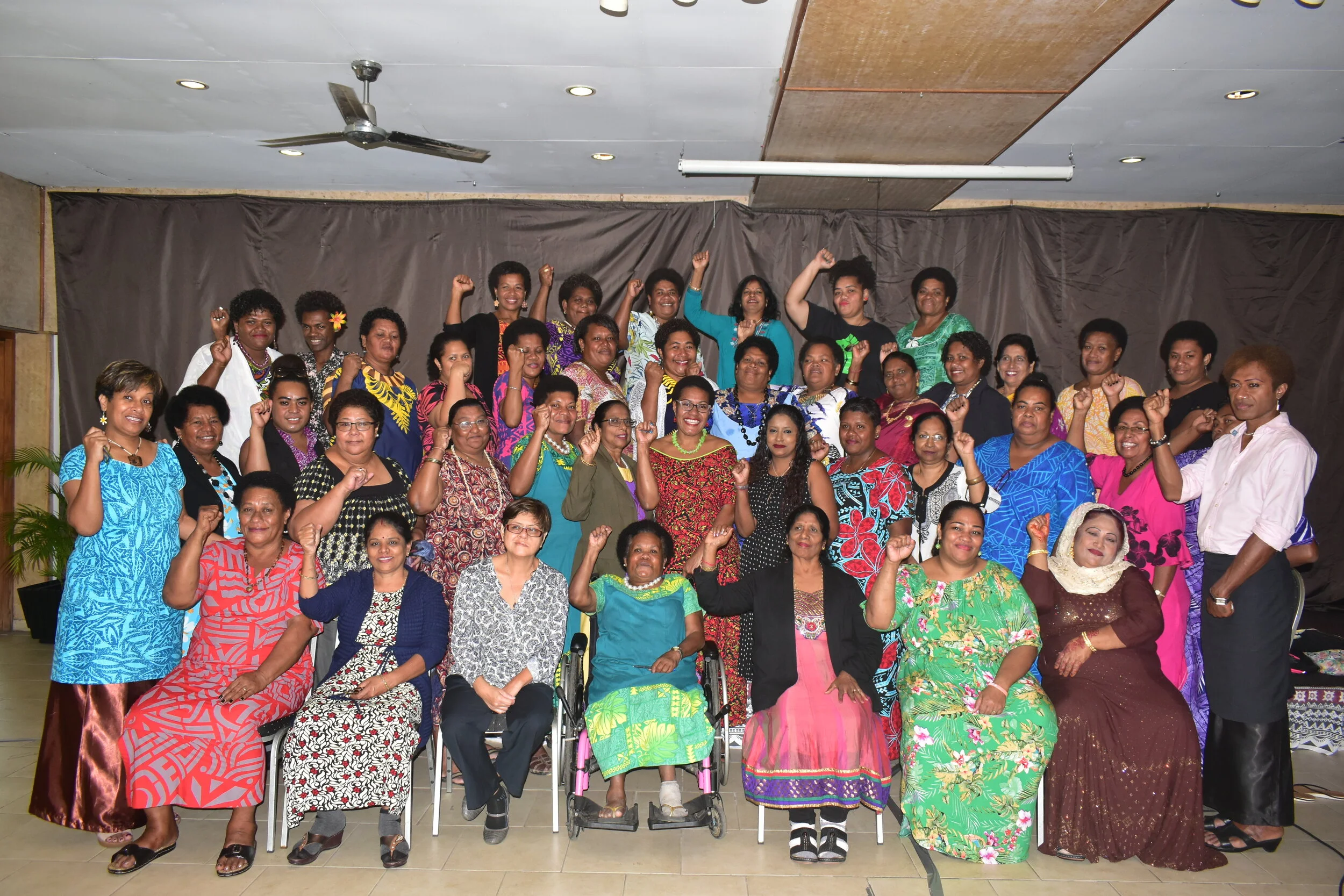“Women have been taking the lead role in rural communities, managing their clubs and groups. Women as first respondents have not been recognised when it comes to decision-making processes,” said Fane Boseiwaqa, femLINK’s convenor for the Ba, Tavua and Rakiraki districts.
Boseiwaqa shared this during the recent national consultations while speaking to women leaders in the lead up to World Humanitarian Day.
She also highlighted the use of the “Red Journal” – an initiative that documents the role of femLINK’s Rural Women Leaders Community Media Network (RWLCMN) in their communities.
“The journals serve as evidence to the many roles women play when they are documented in these journals,” she said.
“With all our different roles, women are still not recognised,” says Frances Tawake, convenor for the Nausori network.
Tawake says the journals helped keep track of these women leaders’ achievements and was also a reminder for women to prioritize themselves.
Miliakere Salaivalu, a community health worker in Tavua says, “Women of all diversities are first responders in their homes and communities and their leadership must be supported.”
“It’s our influence and the small things we do that people learn from,” says Bonita Qio, Executive Coodinator of the Pacific Rainbows Advocacy Network (PRAN).
As the world reflects on World Humanitarian Day and the key role that diverse women leaders play, it is time for reaffirming women as first-responders even more so in the midst of COVID-19.
Susan Grey, femLINK’s Executive Director says the COVID-19 pandemic has brought forward even more the role of women leaders in the network as resilient women humanitarians.
“The arrival of severe Category 4 Tropical Cyclone Harold in early April, in the midst of a pandemic, and with two states of natural disasters in place, demonstrated the vital role of the women leaders as first responders, how they are responding to the crises of the "double pandemic" as this continues and how they are also contributing to peace within.
“We've shared our emerging data from women on the ground of their human security issues - but we have got to demand more than this. Gender needs to be right there at the heart of the humanitarian response,” Grey said.
“It is time for the government to not just commit, but highlight how they will work with women’s civil society to meet the representation targets in decision making processes,” says Kele Gavidi, femLINK’s Programmes Manager.
She adds Fiji’s recent history of natural disasters echoes greater climate unpredictability, persistent droughts and stronger cyclones, resulting in more complex and frequent humanitarian emergencies.
Gavidi says it’s not surprising that complex and frequent disasters are confronting an existing humanitarian system of response that can be improved to reflect current needs.
“We need a more transformative, gender-inclusive agenda for humanitarian response that ensures the rights and specific needs of women and girls in all their diversities affected by natural disasters and humanitarian emergencies are being addressed in national plans, strategies and responses including disaster risk reduction policies,” she says.
Additionally, Gavidi says that women should not only be portrayed as victims of natural disasters and climate change, but rather “they are equal partners in designing strategies and agreements on how to tackle related issues.”

